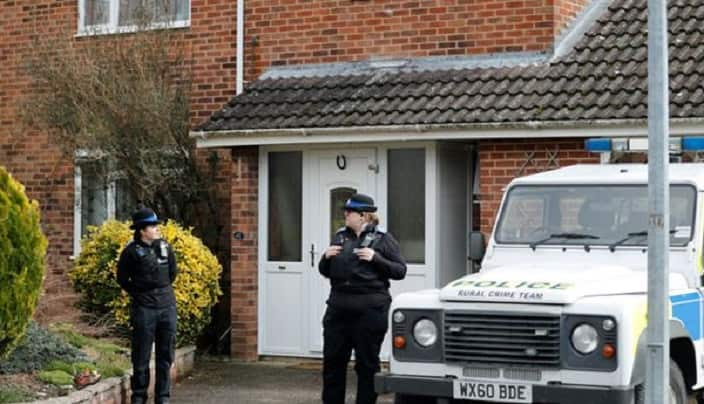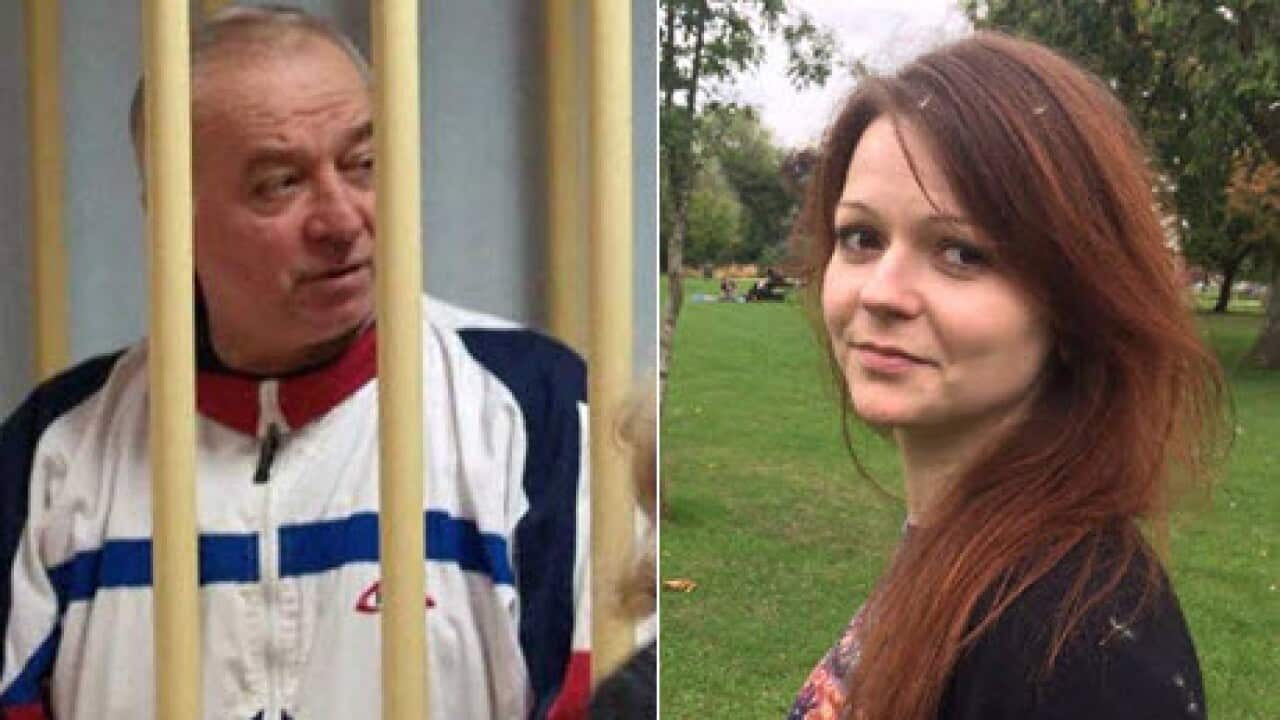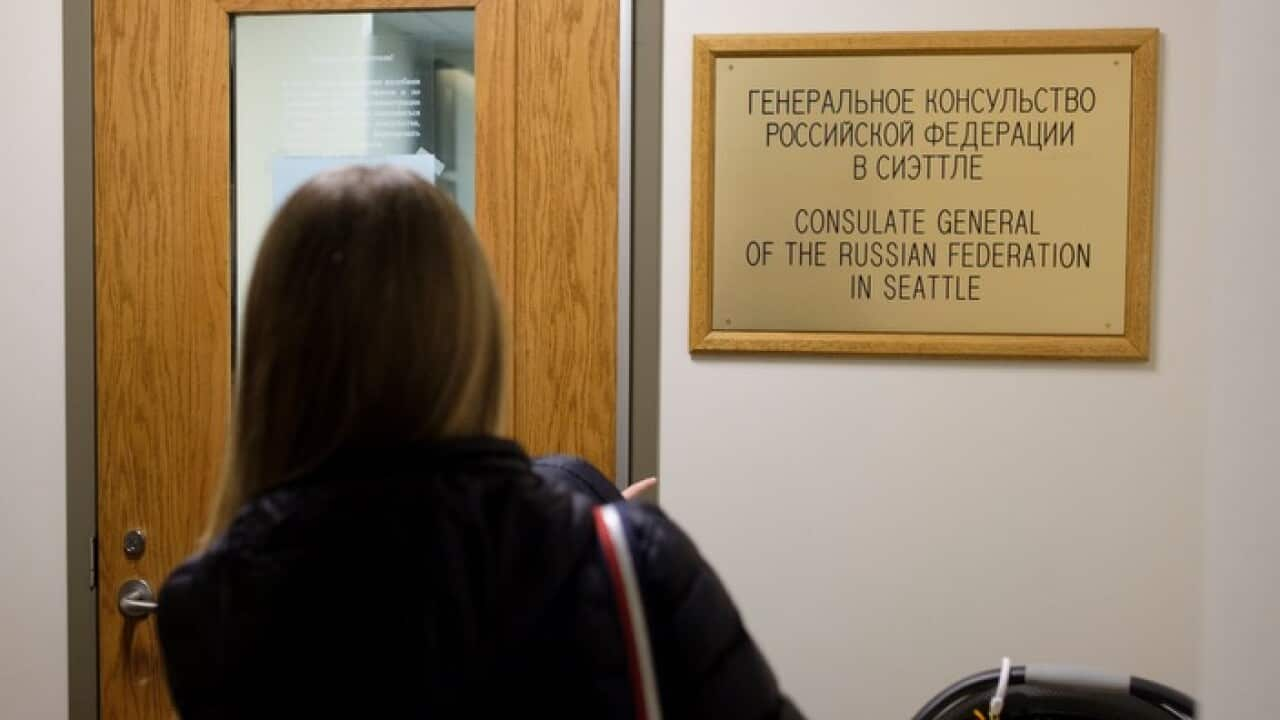The 33-year-old daughter of former Russian double agent Sergei Skripal is "improving rapidly and is no longer in a critical condition", the hospital treating the pair said.
"Her condition is now stable."
Sergei Skripal, 66, remains in a critical but stable condition, Salisbury District Hospital's board said.
The attack on the Skripals in the southwestern English city on March 4 has been met with a major response that has seen more than 150 Russian diplomats expelled from countries around the world.
British authorities have blamed Moscow, which denies any involvement, and said a Soviet-designed nerve agent dubbed Novichok was used in the poisoning -- the first use of chemical weapons in Europe since World War II.
"I'm pleased to be able to report an improvement in the condition of Yulia Skripal," said Doctor Christine Blanshard, the Salisbury hospital's medical director.
"She has responded well to treatment but continues to receive expert clinical care 24 hours a day." A court last week heard that, at that stage, she could not communicate in any meaningful way, while her father could not communicate at all.
A court last week heard that, at that stage, she could not communicate in any meaningful way, while her father could not communicate at all.

Police outside the Salisbury house of Sergei Skripal. Source: AP
British counter - terror police on Wednesday said the Skripals first came into contact with a nerve agent at his Salisbury home - with the highest concentration on the front door.
British police said around 250 counter-terrorism detectives are working on the case, which could continue for months.
Around 500 witnesses have been identified and police are looking through more than 5,000 hours of security camera footage.
Novichok on front door
"We believe the Skripals first came into contact with the nerve agent from their front door," Dean Haydon, Britain's counter-terror police chief, said on Wednesday.
"Traces of the nerve agent have been found at some of the other scenes detectives have been working at over the past few weeks, but at lower concentrations to that found at the home address."
Investigators had sealed off the bench where the Skripals were found, a pub and restaurant the pair visited, and the grave of the former spy's wife.
Alastair Hay, professor emeritus of environmental toxicology at Leeds University, said little was known about the Novichok family of nerve agents.
However, in persistent agents like the better-known VX, contamination is generally through the skin and the full effects are not immediate.
"In situations like the one involving the Skripals, it is likely there would have been delayed onset of symptoms like headaches, feeling nauseous, feeling very weak and possibly vomiting, after the typical exposure occurs through skin contact," he said.
Skripal sold secrets to Britain and moved there in a 2010 spy swap. His daughter was visiting from Russia.
Russia expels US diplomats
Russia has ordered 60 US diplomats to leave by April 5 in a retaliatory move against Washington which expelled a similar number of Russian diplomats over the poisoning of a Russian spy in England.
The foreign ministry said on Thursday it had declared persona non grata 58 diplomats in Moscow and two general consulate officials in Yekaterinburg in the row over the poisoning of former Russian double-agent Sergei Skripal on March 4.
Moments before the ministry announcement, Foreign Minister Sergei Lavrov said Russia would respond in kind to the mass expulsion of diplomats by Western governments which include, apart from the US and Britain, most member states of NATO and the European Union.
"The measures would be reciprocal.... They include expulsion of the equivalent number of diplomats and they include our decision to withdraw our agreement to allow the United States' general consulate to operate in St. Petersburg," Lavrov told a briefing.
The attack on 66-year-old Skripal and his daughter, which Britain has blamed on Russian President Vladimir Putin and says was caused by a Soviet-era nerve agent Novichok left on the door of their home in England, has driven relations between Russia and the West to a new post-Cold War low.
Russia has denied involvement in the attack on the Skripals and says it suspects the British secret services are trying to frame Russia to stoke anti-Russian hysteria.










